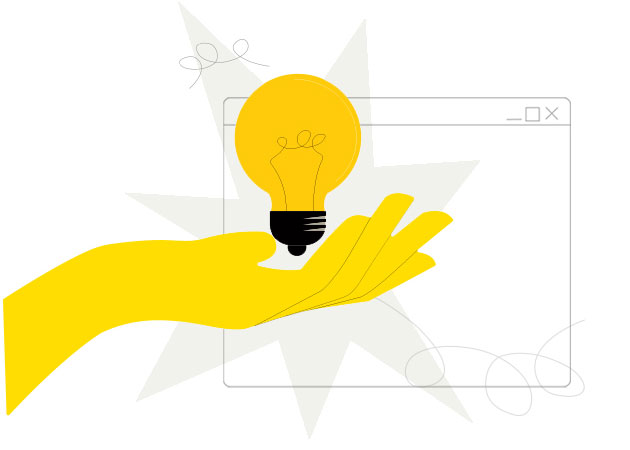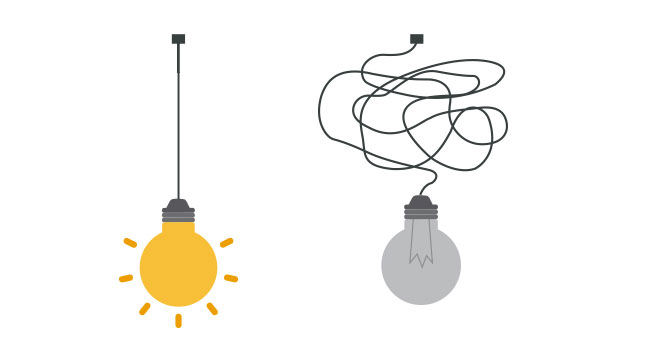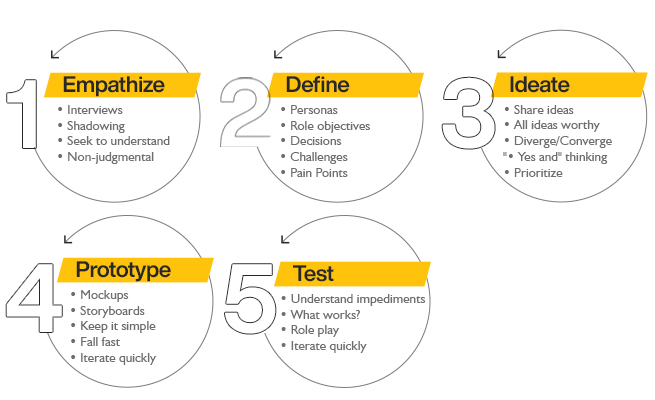All you need to know about Design Thinking, but were afraid to ask!

If you thought ‘Design Thinking’ only applied to graphic and web designers, you couldn’t be further from the truth. Some of the greatest innovations from the world of literature, art, music, science, engineering and business owe their origin to it.
So, what exactly is Design Thinking?

Design Thinking is a process for solving problems by focusing on the consumer’s needs above all else. It is a way of putting the customer at the centre of everything! Leading brands like Apple, Google, Samsung, among others have adapted the approach of Design Thinking to reimagine the customer journey experience and reinvent the customer experience.
At its core, Design Thinking is all about getting organizations to think about the people who they are creating products for. So, when the teams sit to brainstorm for creating a solution for their business needs, they must focus on the ‘human need’ and weave their ideas around this. Doing so, helps in not just creating superior products with a greater user experience, but also improves processes and can have a greater impact on the organization’s Return on Investment.
How can Design Thinking transform the way brands create experiences?

Design Thinking is one of the best ways to drive up your brand’s overall strategy. With the help of design thinking, your brand can get a deeper understanding of the unfulfilled needs of the target customers. What’s more is that it helps reduce the risk associated with coming up with breakthrough ideas, especially when it comes to new products and services. The best part of design thinking is that it helps in generating revolutionary solutions as opposed to incremental ones.
While we know that the role of insights and data are critical to the customer experience, design thinking is the secret sauce which enables brands to remove the unconscious biases and get a complete picture of their customers. This helps in delivering an inclusive experience that’s personalized to the needs of every customer and speaks to them on an individual level.
Design Thinking Meets the Waterfall Approach
Steve Jobs famously said, “Most people make the mistake of thinking design is what it looks like. People think it’s this veneer – that the designers are handed this box and told, ‘Make it look good!’ That’s not what we think design is. It’s not just what it looks like and feels like. Design is how it works.”

So, before you get started, just bear in mind that Design Thinking involves these 5 steps:
Empathize: In this stage, it’s essential to engage with the users and put yourself in their shoes to look for unmet needs, which they might not be aware of.
Define: Here is when you synthesize the findings in the ‘Empathize’ stage into compelling insights and needs. This will help you reframe the consumer need into a compelling challenge.
Ideate: The fun part where one brainstorms to come up with a broad range of outcomes and concepts. Make sure to look for solutions that are beyond the obvious & explore out of the box ideas, which are on the theme.
Prototype: This is when you translate your ideas from the concept to a physical stage. You can sketch it, use post-it notes, create a model or a storyboard or wireframe to manifest your idea.
Test: The final stage of the process is where you seek to get feedback from your target audience and refine the idea or concept, with the aim of improving it.
FYI, you don’t need to necessarily follow the above steps in a sequence. It’s upon you how you do it, how comfortable you are!
So now you know what you should do for customers to have great brand experiences. Comment if you feel that Design Thinking is the next thing on your list, and you would love to do it.

Design thinking is about constant innovation though “creative constraint” . It sounds like an oxymoron, but one way to spark creative action is to constrain it. It’s the constraints that lead us to to being creative or innovative to evolve new processes, products or services.
Am personally very keen on the subject and would love to look into the next creative idea to apply in my sphere of work.
Good one! Thank you for breaking it down so simply.